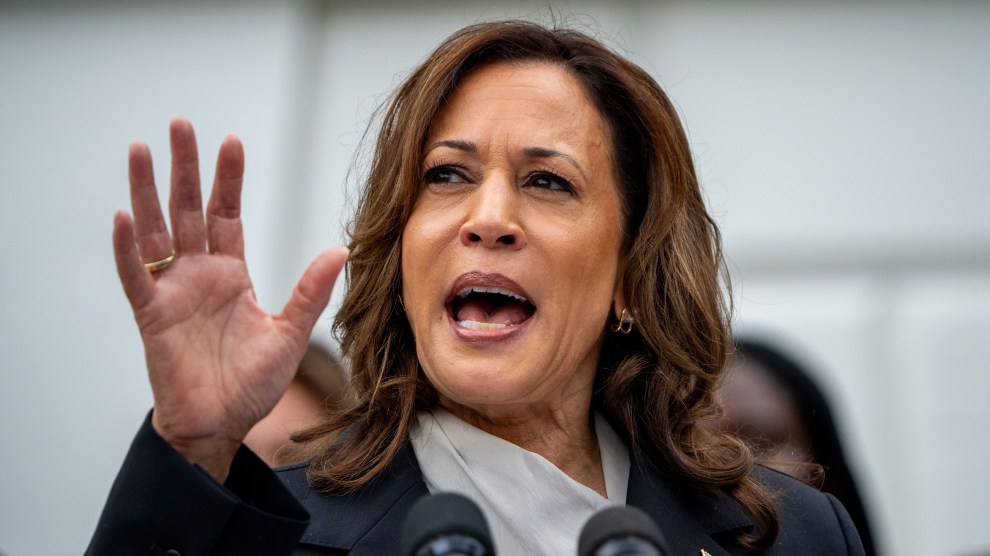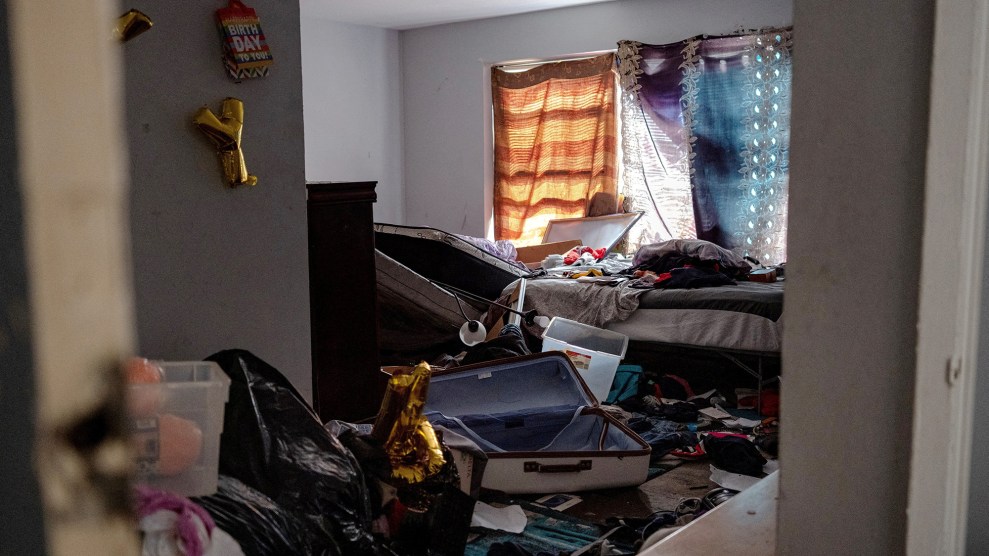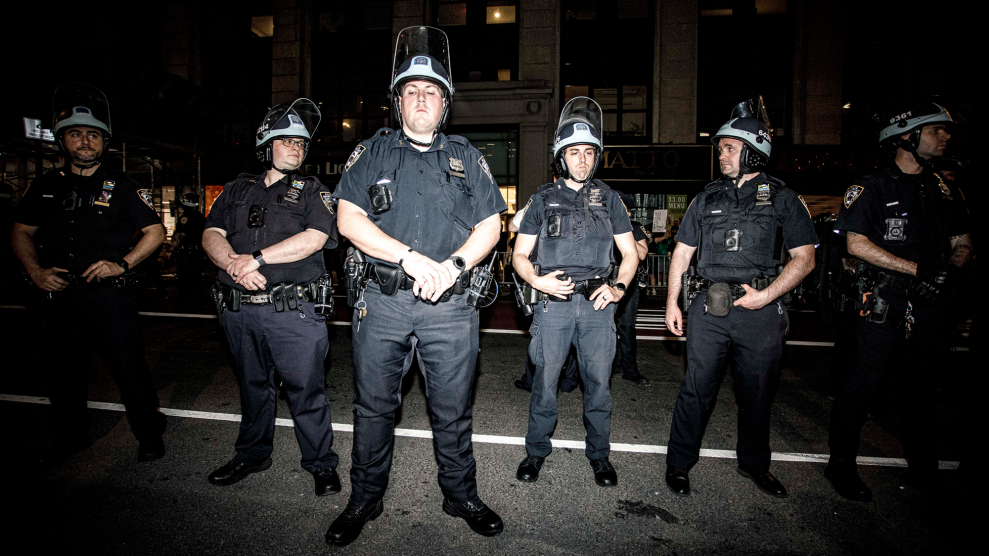
Vice President Kamala Harris Andrew Harnik/Getty Images
As soon as President Biden handed the baton to Kamala Harris, who is now expected to clinch the Democratic nomination, her campaign team and many journalists started framing the presidential race in new terms: “the prosecutor vs. the felon.”
The slogan, which you’ve probably heard repeated ad nauseam by now, is a not-so-subtle reference to Donald Trump’s extremely long rap sheet—filled with 34 criminal convictions—and to Harris’ record of convicting law-breakers while she was San Francisco’s district attorney and then California’s attorney general.
Many former presidents started as lawyers, but Harris would be among the rare few, along with Bill Clinton, William McKinley, and Benjamin Harrison, to bring a prosecutor’s resume to the table. (Side note: It has been reported that James Polk was a county prosecutor, but Polk biographer Walter Borneman dug through his sourcing for me and could find no evidence to suggest he was.) Over the past week, we’ve heard Democratic strategists and political commentators speak on what Harris’ legal credentials could mean for the election. But I wanted to talk with a different sort of expert: those who have actually worked inside prosecutors’ offices.
Cristine Soto DeBerry was chief of staff to then-San Francisco DAs George Gascón and Chesa Boudin, just after Harris vacated that office, and now leads the Prosecutors Alliance of California. Miriam Krinsky was a former federal prosecutor in Los Angeles and the Mid-Atlantic and now runs Fair and Just Prosecution, which works with DAs around the country. And Jamila Hodge, who leads nonprofit Equal Justice USA, previously served as a federal prosecutor in DC and advised the Obama administration on criminal justice policies.
I called them up separately last week after Biden endorsed Harris. Here, they reflect on how Harris’ record as a chief prosecutor could help or hurt her in the race, how it could come in handy if she wins, and what her likely nomination says about these strange times we find ourselves in.
On how Harris’ prosecutorial skill set could be useful in the Oval Office:
Soto DeBerry: The Supreme Court says the president is above the law. Who thinks that’s right? Nobody. And who says we need to hold people to rules? Prosecutors.
“Running this country requires a lot of backbone.”
Harris has a great record on holding powerful people accountable. During the mortgage crisis when she was California’s attorney general, she refused to accept the smaller amount the banks offered in that settlement—she held out and got a huge settlement. When she was San Francisco DA, she made a pledge that she wouldn’t seek the death penalty, and then a police officer was killed almost immediately in her term, and she stood to her principles on that under enormous political pressure, including from Sen. Feinstein and the police union. She’s so tested in being able to stand her ground.
Krinsky: That’s a testament to a backbone, and running this country requires a lot of backbone. She understands the need for prosecutorial independence—prosecutors are not partisan puppets. That’s important as we’re seeing efforts by some to politicize the vast clout and power that prosecutors have.
On how it could makes things more difficult for her during the election:
Hodge: She did harm as a prosecutor; you’re not going to find a prosecutor’s office, even progressive prosecutors’ offices, where harm is not being done. If we understand history—abolishing slavery through the 13th Amendment but carving out the exception, and the imposition of Black Codes—the [legal] system has been used as a means of control of the formerly enslaved. That same foundation still exists. In any courtroom, you’re going to see an overrepresentation of Black people, brown people, marginalized people, poor people. And so harm is being done.
I think that is going to be a liability. You can see it now, just as the announcement came out: There are some folks who are excited, but there are some folks who are very concerned because of her background as a prosecutor, and because they know the system disproportionately harms these important groups.
On Harris’ evolution with criminal justice:
Hodge: She started as a DA in the ’90s, when “tough on crime” was the status quo, and took positions on some things that are now coming back to bite her: You know, that parents should be jailed if kids were absent. As an AG, she would fight to keep the death penalty.
Krinsky: Even at the time, she stood up in some important ways: She recognized the vital importance of building successful reentry back to the community for individuals who have been behind bars.
She was one of the early implementers of body-worn cameras, of implicit bias principles. Those are concepts that have become far more normalized now, but she was an early embracer.
Soto DeBerry: She’s been nuanced in it; her record isn’t all reform or all aggressive: And that’s a lot of where the conversation is right now.
“Her record isn’t all reform or all aggressive.”
Hodge: Over these last 30 years, we’re understanding that punishment doesn’t have the deterrent effect that we thought it did, and that if we want to drive down violence, we need to have better strategies. Under the Biden-Harris administration, there are federal dollars for grassroots efforts that address the root causes of violence—working with youth exposed to trauma, and programs where people volunteer and essentially walk kids to school so they are safe. Services like cognitive behavioral therapy, or grief counseling. Her own support of these approaches mirrors our movement as a country on these issues: that there’s a better way.
On what a Harris presidency could mean for other prosecutors:
Krinsky: Reform-minded prosecutors have seen increasing attacks on their autonomy: efforts to remove elected DAs from office, to erode their discretion. In [the GOP’s] Agenda47 and Project 2025, there’s a suggestion that we should move toward a politicized Department of Justice and labels like “Marxist prosecutors.” [Editor’s note: Trump recently called for the DOJ to investigate reformist DAs who decline to charge certain crimes.] The attacks of local prosecutors for decisions they’re making is going to drive those decisions into the shadows—we’re going to lose the transparency that currently exists, and people aren’t going to know where their DA stands on critical issues.
Harris recognizes the danger in eroding an independent Department of Justice, in politicizing elected local prosecutors, in removing somebody from office just because their agenda may not align with that of the state executive or the president. And so there’s hope that if she’s in office, those fundamental principles around democracy and the rule of law will remain sound.
Hodge: Black women prosecutors who lead offices, particularly offices where they are implementing policies to change the system, have had a hard time—they get lots of death threats, racist attacks. So it’s got to be encouraging [for them] to see that if you keep pushing, if you keep putting your head down and doing the work, sometimes it comes together and your work is seen. Your leadership is recognized, and the doors are open for you.
Interview excerpts have been condensed.


















